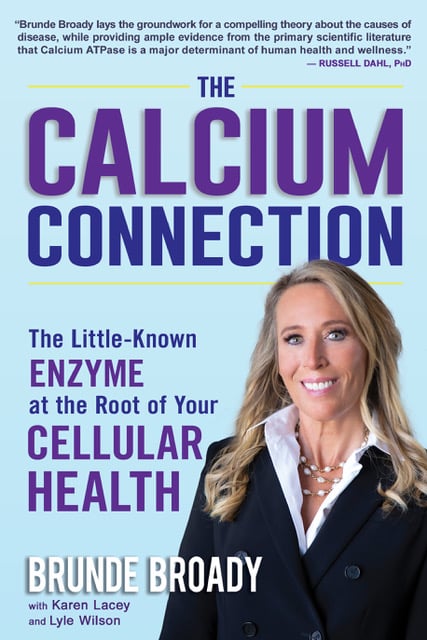Why You Need Calcium
When you hear the word calcium my guess is you think of bones and teeth or perhaps how important it is to prevent osteoporosis. Well, today I am going to share another function of calcium within your body.
Exactly Why You Need Calcium
First a top view. Calcium is the most abundant mineral in our body with the average person having 2.2 pounds of calcium in their body; 99% of this calcium is found in your bones, teeth, and ligaments. But there is a tiny amount, approximately 1 ½ teaspoon, that is found in your bloodstream and inside of your cells.
The calcium within your cells is called intracellular calcium and the levels of intracellular calcium rise and fall millions of times a day. That is because the rise and fall of calcium within your cells act as the traffic signal for every cell function.
Imagine a city where traffic signals were not working correctly. There would be complete chaos. Cars would crash, traffic would back up. Your body is like a busy city. Instead of traffic speeding about imagine millions of essential processes; nerves pulsing, muscles contracting, heart beating, blood flowing, cells dividing. Intracellular calcium levels control these actions, every second, every minute of the day.
How Does This Work?
When the brain wants something to happen it triggers a rise in intracellular calcium (in simple terms calcium gates open and calcium enters the cell as well as being released from storage compartments in the cell).
When calcium levels rise, an event is triggered, i.e. muscle contraction, neurotransmitter release, and the heart pumps blood, but equally important is the flip side i.e. muscle relaxation.
So after an event is triggered calcium levels need to be lowered to resting levels. (Otherwise, if you shook your friend’s hand you would not be able to release it!) The primary tool the body uses to lower intracellular calcium is an enzyme called Calcium ATPase. Calcium ATPase is found in every cell of your body and its job is to pump calcium out of the cytoplasm of the cell and move it to storage compartments within the cell.
This accomplishes two things: It lowers intracellular calcium back to baseline, and secondly, it ensures there is adequate calcium in storage for the next event to happen. Please don’t be intimidated by the name. Calcium (a mineral) ATP (just means it runs off the energy of ATP) and ase (which just means it is an enzyme.)

Without adequate Calcium ATPase, the body is more susceptible to chronic diseases such as cancer, obesity, diabetes and dementia, and heart disease.
In my book the Calcium Connection I lay out a Calcium ATPase Max Plan with 4 parts
- How to reduce exposure to toxins that reduce Calcium ATPase (think mercury, lead, cadmium, fluoride, aluminum, food dyes, food preservatives, bisphenols (BPA) OTC medications, recreational drugs, etc.)
- Eat foods that have one of 5 natural compounds that stimulate Calcium ATPase (I also include delicious recipes!) Plus two supplements that I recommend.
- Exercise: Great news is that HIT, moderate aerobics, and strength training have been shown in research studies to stimulate Ca2+ATPase whatever your age!
- Manage Stress: I explain how stress affects Calcium ATPase and what you can do about it.
Here Are Some Practical Tips
- Avoid tuna sushi because of its high mercury levels.
- Use stainless steel bottles instead of plastic to avoid BPA and BPA replacements. Buy canned food only with a BPA-free label. That includes coconut milk. Toss out plastic storage containers…glass or stainless steel better options
- Reduce dust at home because it is the greatest source of toxins such as pesticides, and fire retardants.
- Avoid all food dyes (including in nutritional supplements!)
- High blood sugar is the enemy of Calcium ATPase. Save those sugar highs for special occasions.
- Avoid cooking acidic foods in foil (i.e. lemon or tomato). This causes the aluminum to leech into food.
- Avoid charred food at your barbeques. They contain benzopyrenes that reduce Calcium ATPase.
- Get a water filter….the majority of the toxins it will filter such as lead inhibit Calcium ATPase. (Make sure you pick an independently rated filter.)
- Eat foods that contain compounds that stimulate Calcium ATPase: Luteolin, Ellagic Acid; Lycopene; and Resveratrol. For example all types of berries, red grapes; pomegranates, cranberries, almonds, pecans, pine nuts, sunflower seeds, celery, spinach, red kale, tomatoes, asparagus, green red, and yellow peppers.
Wrap-Up
For more, please visit my website at BrundeBroady.com.
- Why You Need Calcium: It Does More Than Strengthen Your Bones - April 15, 2021